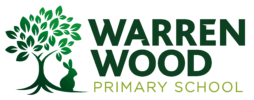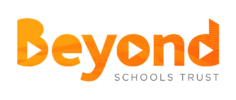At Warren Wood Primary Academy, we have carefully considered how to reset our curriculum following the pandemic’s school closures across the last two academic years. We have followed Local Authority and Government guidance in order to map out where children’s current learning is, to consolidate and master past learning, and then subsequently progress with new content to meet the interim curriculum expectations for the school year 2021-2022.
This approach considers the research and advice from the Education Endowment Foundation (EEF) which suggests the following five areas as tools from which to select appropriate strategies and approaches to support all students. From now, and throughout 2021-22, we will continue to use teacher assessments to identify gaps in learning and put in place appropriate provisions, interventions and opportunities for learning and personal development. Our school ethos promotes the securing of the essential life skills and our recovery curriculum supports children’s attainment of cultural capital and ‘hands-on’ learning. We aim to ensure a smooth transition for every child and in doing so hope to minimise the impact these school closures will have on our pupils’ wider educational journey.
1) Quality-first teaching
- Learning is personalised and differentiated to meet the needs of a children in the classroom
- Time is dedicated to consolidating key knowledge and skills, with a focus on handwriting, phonics, reading and number fluency.
- The whole-school curriculum has been re-written so that sequencing is clear. Every teacher has a copy of the whole-school curriculum, so that gaps in knowledge can be pre-taught at a different level.
- Key skills and knowledge are repeated but elaborated and developed as children move through the school
- Teachers are provided with support from specific subject Leads
- Teachers are to undertake CPD (Continuous Professional Development), delivered by the National College, in order to develop practice
- Teachers communicate frequently with other schools, both within and outside the Trust. This includes working with Secondary schools to ensure that progression from Year 6 to KS3 is smooth and that coverage is targeted
- Formative and summative assessments allow the challenging of misconceptions and support precise teaching to address gaps at a whole-class level
- Acquired knowledge and identified next steps support transition to the next year group
- We engage through partnerships of EY settings to prepare for EYFS reforms
- We ensure that pupils continue to have a rich and broad curriculum
2) Targeted intervention
- Weekly RSL meetings are held to identify and support the learning needs of children
- Attendance is monitored closely, offering support to families within our school systems.
- We work closely with many external agencies to offer the speech and language therapy services and to provide support, advise and strategies for pupils and their families: specifically, in the Evergreen Centre.
- We buy into Accelerated Reader, Myon and TTRS to promote reading and maths both at school and at home
- We are members of Pearson’s Bug Club – a verified and decodable phonics programme, to support early reading
- TA’S, teachers and external agencies provide in class, small group and 1:1 support for identified pupils
3) Additional 1:1/ small group support
- The bottom 20% of readers in each class are identified termly and additional reading interventions are put into place: Paired Reading, Guided Reading and Reciprocal reading, depending on group size and specific learning need
- Students from Secondary schools within the Trust (don’t need a comma here) come in to support with Reading and Maths
- Pupil Premium money supports the reaching of targets for specific children
4) Wellbeing provision
- Additional wellbeing and PSHE (Personal, Social, Health, Economic) sessions undertaken upon return to school
- Regular updates of risk assessments to ensure that the provision given is safe for all stakeholders.
- Additional time spent on pupil wellbeing, social skills development and self-regulation.
- LA (Local Authority) ongoing support from wider services
- Building on successful communications with parents and carers that resulted from extended periods of Covid lockdowns.
- PSHE curriculum specifically focused on responding to Covid 19 and the after effects.
- Check-in stations and calm kits present in all classrooms
5) Year to year transition
- Time allowed for thorough communication between teachers when the class is transitioning from one to the other
- Chronologies move up with classes, so teachers understand the learning needs of all children (including SEND)
- Year 6 make regular contact with local secondary schools and prepare the children in a variety of ways. Children who need additional support identified
- Careers week supports our ethos and the transition into Secondary and life post-education
- Consistent approach to the end of KS2 assessments

